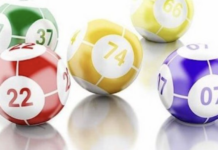The use of sports as an instrument for peace and understanding between nations is referred to as athletic diplomacy. Throughout the history of humankind, sports have become one of the most unique platforms for dialogue and cooperation among countries that do not want to take part in politics with each other. This article gives a brief historical background and some iconic examples of athletic diplomacy which have helped bring together different cultures and political entities.
Historical Context of Sports Diplomacy
The record books show that sports diplomacy may have its roots in ancient times. The Olympic Games that trace their origin to ancient Greece were among the early occasions when it was used as a unifying force among city-states. In more recent years, it has continued to be an instrument of diplomacy.
For example, during the Cold War, events like the 1971 Ping Pong Diplomacy between the United States and China opened up diplomatic pathways. Similarly, Zaire, now called the Democratic Republic of the Congo, held “The Rumble in the Jungle” boxing match in 1974. This event showed how it could be used for national pride and world attention. Additionally, engaging with sports today offers unique opportunities, such as using platforms like the download Melbet app apk to place bets, enhancing the excitement around international sports events and bringing fans closer to the action.
Iconic Examples of Sports Diplomacy
There are several key events that demonstrate how strongly sports can influence world politics. Some examples include:
- Ping Pong Diplomacy (1971): Exchange of table tennis players between the US and China, which led to an improvement in bilateral relations.
- Olympic Games (various years): It would be wrong not to mention that the Olympics have always been about promoting peace or unity, as witnessed by the joint North-South Korean teams in 2018.
- Rugby World Cup (1995): Nelson Mandela’s support for the South African rugby team symbolised reconciliation in Post-Apartheid South Africa.
These show how sports can go beyond political boundaries, creating global cohesiveness through a sense of community.

Sports Diplomacy’s Mechanisms
In a bid to foster international relations, sports diplomacy is operationalised through different mechanisms. These include athletes’ participation, hosting global sporting events, and the involvement of international sporting organisations. These constituents combine to form dialogic openings that enhance world interrelations.
Olympic Truce
The Olympic Truce—an old concept that was reintroduced in this era—is aimed at promoting peace during the Olympics. This truce was implemented in ancient times by Greece, which requested a cessation of hostilities to ensure the safe passage of athletes and fans.
In practice today, the International Olympic Committee (IOC) calls on countries to honour it, ensuring peaceful contact and emphasising that sports are one family. It has stopped wars temporarily and encouraged dialogue among nations, showing how sport can act as a vehicle for peace.
Cultural Exchanges
Sometimes sports events lead to significant cultural exchanges that improve relationships between different nations. For instance, the FIFA World Cup and Olympics merge people from diverse backgrounds together, fostering understanding and respect between them. Cultural dialogues are created in these meetings, with countries having an opportunity to showcase their way of life on a global scale.
When North Korea marched next to South Korea under one flag during the 2018 Winter Olympic Games in Pyeongchang, it symbolised a moment of peace and cooperation amidst political strains. Such exchanges underscore the importance of sports in bridging cultural differences and closing political gaps between different societies.
Sport Diplomacy Challenges
Several challenges are associated with using sport as a diplomatic tool. One big problem is politicisation, where instead of being unifying platforms, events turn into political dispute arenas. Commercialisation can also overshadow diplomatic efforts, prioritising profit over peace.
Besides, the effectiveness of sports diplomacy may be limited when there are deep-seated political tensions, as seen in conflicts where interaction does not yield any meaningful change. Critics hold that, at times, this diplomacy is superficial and only entails symbolic gestures without addressing the root problems.

Trends in Sports Diplomacy Today
Modern athletic diplomacy is changing with time by adopting new trends and practices. Some of them are:
- Digital Engagement: Athletes and organisations extend their message through social media to global audiences for peace.
- E-sports Integration: E-sports is becoming a diplomatic platform, reaching out to young people across diverse cultures.
- Unified Teams: The Winter Olympics’ Unified Korea team symbolises what can be achieved through athletic diplomacy.
These trends show how technology and fresh approaches enhance the impact made by athletic diplomacy.
Sports diplomacy uniquely bridges cultural and political divides, fostering global unity. Despite these difficulties, nothing else has so far worked better than athletics in achieving peace and understanding among nations. As media and technology continue to advance, it seems likely that sports will increasingly play an important role in international relations, uniting people from different cultures within this peripheral location.




